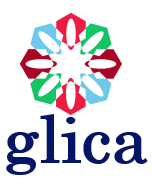Funding Opportunities

- Dept. of Health & Human Services – RFA-MD-23-004: Community Level Interventions to Improve Minority Health and Reduce Health Disparities (R01 – Clinical Trial Optional)
- National Cancer Institute – PAR-23-112: Addressing the Impact of Structural Racism and Discrimination on Minority Health and Health Disparities (R01 – Clinical Trial Optional)
- NCI Infrastructure PAR-20-070, “Research Infrastructure Development for Interdisciplinary Aging Studies (R33/R33)
- Notices of Special Interest NOT-CA-20-037, NOT-CA-21-031
- National Institute on Aging
- Aging Mouse Models Network
- Georgetown Lombardi Comprehensive Cancer Center Pilots
- Annual Grant in Cancer and Aging 50k
- Annual CCSG Developmental Funds Awards
- Georgetown-Howard Universities Center for Clinical and Translational Sciences (GHUCCTS)
Below are a few highlights of this NOSI:
- This NOSI calls for the development and characterization of oncoaging models to study cancer development, progression, or response to cancer therapy in the context of aging biology.
- An oncoaging model is expected to be a cancer model integrated with age-related biological changes.
- Collaborations between aging and cancer researchers are strongly encouraged.
- The NOSI will stay active for three years from 2024 to 2027. The earliest submission due date is February 5, 2024.
- An application responsive to this NOSI may be submitted through an R01 or R21 NOFO listed in the notice, depending on the scope and focus of the research project. Please cite this NOSI in your application submission.
Cancer Center Support Grant (CCSG) Developmental Funds Awards (1 year award at $10,000-50,000)
Funded through the LCCC’s CCSG, which is funded by NCI. Developmental funds are available to all LCCC members with a cancer relevant research focus, including basic, clinical, translational, or population sciences with the exception that investigators who have received developmental funds twice within the last 5 years will not be eligible for additional funds. Projects related to grant applications that scored well (i.e. 20th percentile or lower) but need further preliminary data for resubmission and intend to resubmit by December 2022 will be given the highest priority. Funding is not renewable and the below priorities based on the LCCC 2021-2026 strategic plan will be considered.
a. MPI with LCCC DC and NJ campus collaborations
b. Projects that aim to achieve Cancer Center strategic objectives and focus on one or more of the following areas of research:
- Cancer-related health disparities and issues within the LCCC catchment area and/or underrepresented minorities
- Cancer and aging
- Survivorship research
- Correlative science associated with an investigator-initiated clinical trial derived from cancer center science
- Global oncology
- Advancement of a target/biomarker along the translational pipeline (from bench to bedside or vice versa)
- Intersection of Cancer and Infection
Three new FOAs to connect the dots
To encourage innovative research on the interactions between hallmarks of aging, NIA has issued three interconnected Funding Opportunity Announcements (FOAs), all with the due date of Oct. 11, 2022:
RFA-AG-23-012 Inter-Organelle Communication as a Platform to Interrogate the Interactions of Hallmarks of Aging (R01 Clinical Trial Not Allowed)
Contact sites where the membranes of cell organelles come together are critical hubs for the transfer of ions, metabolites, lipids, and proteins that have important roles in cellular aging. This FOA aims to deepen our mechanistic understanding of organelle communication and how it shapes the interactions of the hallmarks of aging.
RFA-AG-23-013 Mapping Interconnectivity Among Hallmarks of Aging Under Lifespan Modifications (R01 Clinical Trial Not Allowed)
This FOA is designed to discover whether there are hierarchies among the hallmarks that underlie different changes with age, or if there is a threshold beyond which the hallmarks and/or their interactions with one another become “tipping points” that beyond which the aging process cannot be reversed.
RFA-AG-23-015 Studies of Cytosolic DNAs in the Interactions of Aging Hallmarks (R01 Clinical Trial Not Allowed)
The accumulation of DNA in the cytosol (the fluid portion of a cell’s cytoplasm) has important associations with aging, cellular senescence, and decline of cellular and physiological functions. The goal of this FOA is to explore cytosolic DNAs as integrators of hallmark interactions and instigators of downstream events leading to age-related cellular and tissue deterioration.
Building an innovative aging hallmarks research consortium
While each FOA emphasizes a unique challenge, releasing the trio of opportunities together should increase collaboration and the exchange of data, technical resources, and expertise. We hope the collective impact can lead to a clearer and more comprehensive view of the complex picture of the aging hallmarks and their mechanisms.
We are also optimistic that these three FOAs will spark additional scientific collaboration and data sharing to broadly advance the field of aging biology. We plan to help in this process by organizing regular scientific meetings and virtual conferences to build an innovative network of investigators and labs studying new approaches to understanding the hallmarks of aging. This network will serve as a platform to report updates, share technical advances and resources, and tackle research hurdles.
If you are interested in helping advance our understanding of aging hallmarks, we encourage you to apply by Oct. 11! If you have questions, please contact the NIA Division of Aging Biology .

